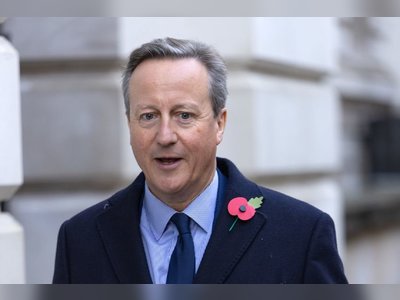UK Government Acknowledges Billionaire Exodus Amid Tax Rise Concerns
Business Secretary Peter Kyle admits some wealthy individuals, including Lakshmi Mittal, are leaving the UK in response to tax policy changes
The UK government has openly recognised the departure of high-net-worth individuals amid mounting concern over tax increases and regulatory reforms.
Business and Trade Secretary Peter Kyle confirmed that some super-rich residents are deciding to relocate following the Labour administration’s decision to scrap the non-domicile regime and introduce additional taxes.
Asked about the reported move of steel magnate Lakshmi N Mittal to Switzerland and then Dubai due to Britain’s evolving tax landscape, Mr Kyle said he was “worried whenever somebody feels they have to leave the UK in order to succeed”.
He emphasised that Britain must not only focus on the departure of billionaires but also on broader talent and entrepreneurial migration: “There are people starting businesses that have gone to America in their droves because they haven’t had the funding to succeed.”
Mr Kyle accepted that the government’s decision to raise taxes and close non-dom loopholes had contributed to the issue, stating: “I do.
I’m not going to duck the fact that we have put up taxes, and we’ve closed some of the loopholes for non-doms.” The non-domicile status, which allowed overseas nationals living in the UK to benefit from a favourable tax regime, was ended for new claimants from April 2025.
The departure of wealthy individuals is occurring against the backdrop of a critical fiscal moment.
Chancellor Rachel Reeves is preparing an Autumn Budget to bridge a £20 billion–£35 billion gap in public finances using a combination of tax rises and spending control, all while maintaining the government’s rigid fiscal rules that demand day-to-day spending to be covered by tax receipts and public debt to fall relative to GDP by the end of the decade.
The minister’s admission comes amid reports that more than 16,500 millionaires may leave the UK in 2025, drawn by jurisdictions such as Dubai, Switzerland and Monaco that offer lighter tax burdens.
Academic analysis suggests the loss of such individuals could equate to more than half a million average taxpayers’ income-tax contributions in lost revenue.
City finance leaders are urging the government to provide greater tax certainty and to avoid further heavy-handed tax rises, warning that further capital flight could damage business investment, London’s financial-services standing and long-term growth prospects.
Mr Kyle insisted that the government remains committed to attracting global talent and capital, highlighting new initiatives to support start-ups and innovation, and pledging to make the UK the best environment for businesses to scale.
Yet the public admission of the wealth exodus reflects the acute challenge facing the UK: balancing fiscal repair and fairness with retaining the investment and entrepreneurs that have long underpinned its economic dynamism.
Business and Trade Secretary Peter Kyle confirmed that some super-rich residents are deciding to relocate following the Labour administration’s decision to scrap the non-domicile regime and introduce additional taxes.
Asked about the reported move of steel magnate Lakshmi N Mittal to Switzerland and then Dubai due to Britain’s evolving tax landscape, Mr Kyle said he was “worried whenever somebody feels they have to leave the UK in order to succeed”.
He emphasised that Britain must not only focus on the departure of billionaires but also on broader talent and entrepreneurial migration: “There are people starting businesses that have gone to America in their droves because they haven’t had the funding to succeed.”
Mr Kyle accepted that the government’s decision to raise taxes and close non-dom loopholes had contributed to the issue, stating: “I do.
I’m not going to duck the fact that we have put up taxes, and we’ve closed some of the loopholes for non-doms.” The non-domicile status, which allowed overseas nationals living in the UK to benefit from a favourable tax regime, was ended for new claimants from April 2025.
The departure of wealthy individuals is occurring against the backdrop of a critical fiscal moment.
Chancellor Rachel Reeves is preparing an Autumn Budget to bridge a £20 billion–£35 billion gap in public finances using a combination of tax rises and spending control, all while maintaining the government’s rigid fiscal rules that demand day-to-day spending to be covered by tax receipts and public debt to fall relative to GDP by the end of the decade.
The minister’s admission comes amid reports that more than 16,500 millionaires may leave the UK in 2025, drawn by jurisdictions such as Dubai, Switzerland and Monaco that offer lighter tax burdens.
Academic analysis suggests the loss of such individuals could equate to more than half a million average taxpayers’ income-tax contributions in lost revenue.
City finance leaders are urging the government to provide greater tax certainty and to avoid further heavy-handed tax rises, warning that further capital flight could damage business investment, London’s financial-services standing and long-term growth prospects.
Mr Kyle insisted that the government remains committed to attracting global talent and capital, highlighting new initiatives to support start-ups and innovation, and pledging to make the UK the best environment for businesses to scale.
Yet the public admission of the wealth exodus reflects the acute challenge facing the UK: balancing fiscal repair and fairness with retaining the investment and entrepreneurs that have long underpinned its economic dynamism.










